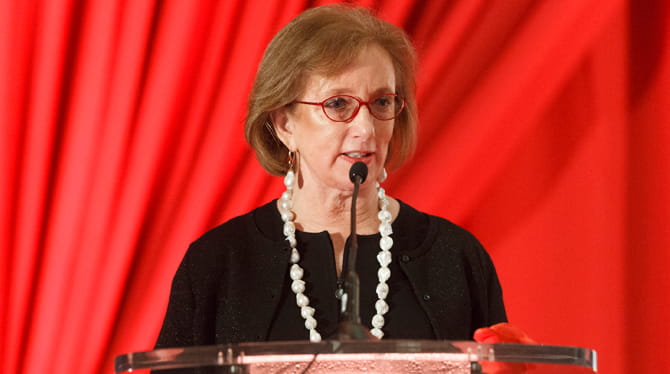Dr. Mariell Jessup: "Never stop talking about the need to improve women’s health"
Dr. Mariell Jessup is Chief Science and Medical Officer of the American Heart Association
Dr. Mariell Jessup is Chief Science and Medical Officer of the American Heart Association and an Emeritus Professor of Medicine at the University of Pennsylvania School of Medicine. She was the chief scientific officer of the Leducq Foundation from January 2017 through August of 2018, before moving to her role at AHA. She practiced heart failure and transplant cardiology for 30 years at the Hospital of the University of Pennsylvania, where she served in a variety of administrative roles, including medical chief of the heart and vascular program and clinical chief of cardiology. She has been a long-time volunteer of the AHA and was a member of the Board of Directors of the national AHA and president from 2013 to 2014.
- How do you rate your participation in the CNIC Conference?
Very enjoyable and educational. The CNIC Conference provided a valuable platform for sharing cutting-edge research, engaging in meaningful discussions with global experts, and reflecting on the collective progress we've made in cardiovascular medicine.
- Looking back on your career, what key advances in heart failure treatment do you think have had the biggest impact on patient outcomes?
Drugs that inhibit the renin-angiotensin-aldosterone axis. These therapies, including ACE inhibitors, ARBs, and more recently ARNI, have transformed the management of heart failure and significantly improved survival and quality of life for patients.
- What are the biggest challenges we still face in reducing disparities in cardiovascular care, especially in underserved populations?
Implementation of proven therapies for heart failure in all eligible patients. Barriers include limited access to qualified clinicians, high costs, and the complexity of drug regimens. Addressing these systemic issues is crucial for equitable care.
- What does “advancing health and hope for everyone, everywhere” mean to you personally as a cardiologist and leader? What global strategies do you believe are most critical to reducing the burden of cardiovascular disease in low- and middle-income countries?
Prevention of cardiovascular disease is the most cost-effective strategy worldwide. This includes eliminating tobacco use and achieving better control of blood pressure. These foundational interventions have the potential to dramatically reduce disease burden globally.
- How can professional organizations like the American Heart Association help bridge the gap between scientific advances and their implementation in underserved communities?
The AHA has worked for over two decades to translate scientific advances into actionable clinical measures. These efforts help ensure that life-saving interventions reach patients across all demographics and regions, with a focus on equity and access.
- From your perspective, how can we better integrate patient voices into research, policy, and care models to ensure solutions are meaningful and equitable?
The patient voice needs to be incorporated into every phase of research, policy, and care. This is particularly essential in the development of clinical practice guidelines to ensure they are patient-centered, culturally sensitive, and applicable to diverse populations.
- Cardiovascular disease is the leading cause of death in women globally, yet it’s often underdiagnosed and undertreated. What are the biggest barriers you see to improving women’s heart health?
Women’s awareness of their cardiovascular risk needs to be elevated. Additionally, we must generate new evidence specific to women by ensuring that clinical trials include sufficient female participation.
- How do social determinants of health — like poverty, education, and gender inequality — intersect with cardiovascular risk in women, and how can health systems respond?
Access to care is a major determinant of health. Women are disproportionately affected by limited access worldwide. Health systems must prioritize removing structural and economic barriers to improve outcomes for women.
- As a leader, how do you advocate for making women’s health a stronger priority on the global cardiovascular agenda?
Never stop talking about the need to improve women’s health. Consistent advocacy, paired with a call for more gender-specific research and representation, is essential to driving systemic change and closing the gap in cardiovascular outcomes for women.
Dr. Mariell Jessup have participated in CNIC Conference: 9th Annual Cardiovascular Bioengineering Symposium











